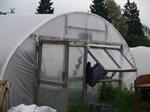.jpg)
Fast Track Certificate for Anyone wanting to Work in Gardening
- Start your own business
- Get a job in Horticulture
Course Structure
There are ten lessons in this course:
1. The Plant Kingdom (part a)
2. The Plant Kingdom (part b)
3. The Plant Kingdom (part c)
4. Plant Propagation
5. Outdoor Food Production
6. Garden Planning
7. The Root Environment and Plant Nutrition
8. Protected Cultivation
9. Horticultural Plant Selection, Establishment and Maintenance
10. Horticultural Plant Health Problems
 DURATION
DURATION
Nominally 120 hours, though we believe only students who already have some prior experience could complete it within this time frame. Most students should budget on spending 150 hours or more doing this course if they hope to be successful when sitting final (2) exams
AIMS
- Demonstrate a broad range of horticultural knowledge; communicate clearly and coherently in writing on horticultural matters; and relate horticultural science to its practical application.
- Understand the classification of higher plants and appreciate the internal structure of higher plants.
- Understand the external structure of higher plants
- Develop an understanding of the principles and main practices of plant propagation in horticulture.
- Understand the fundamental physiological processes within the plant including photosynthesis, respiration, water movement, pollination, fertilisation, seed formation and germination.
 Develop an understanding of the principles and main practices of plant propagation in horticulture.
Develop an understanding of the principles and main practices of plant propagation in horticulture. - Understand basic cultural operations and production methods necessary to obtain outdoor food crops.
- Understand basic surveying and design principles and apply them to basic garden design and planning requirements.
- Develop an understanding of the constituents, properties and management of soils and growing media.
- Develop an understanding of environmental control and plant cultivation in greenhouses and other protected environments.
- Develop an understanding of plant selection, establishment and maintenance of a range of ornamental plants.
- Develop an understanding of pest, diseases and weeds that affect horticultural plants, and the cultural, biological, chemical and integrated systems used to control those problems.
GARDEN TIPS FROM OUR TUTORS
What Does a Garden Cost?
Costs in a garden have a tendency to sneak up on us but with a little forethought and the right choices, you can vastly increase the value for money you spend.
Gardens can be relatively cheap or very expensive. Unlike most other things we buy though, most of us tend not to think about the full cost of what we do in our garden.
- Do you know what you spend on your garden every year?
- How much do you want to spend on your garden next year?
- Do you go to the local garden supplier just to see what you can find?
- Do you have to go to the hardware store for a new tool every time you have a job to do?
If you answered ‘yes’ or ‘don’t know’ to any of these questions, maybe it’s time to think about working out a garden budget.
WORKING OUT YOUR BUDGET
Gardening should be part of your household budgeting. Like your household budget, it requires realistic estimates of how much you can afford to spend, what you would like to buy, and what you need to buy. A garden budget will also help you to control those impulse purchases that you might later regret.
Remember, an attractive garden can add to the value of your property. Money wisely spent on improving your garden adds to your quality of life and is also a sensible financial investment.
HAVING A GARDEN PLAN
Many people simply let their gardens “happen”. If you have a garden plan you can work out what tasks need to be done and in what order to do them. This can make budgeting much easier.
Plans can be either a drawing of how you would like your garden to look, a list of priorities for the garden, or a combination of both. Once you have this, you can work out how much each item is going to cost and whether you can afford it.
 START UP COSTS
START UP COSTS
Costs for establishing a new garden or rejuvenating parts of a garden are much greater than ongoing maintenance expenses. Start up costs include:
Paving
Fences
Retaining walls
Furniture and garden ornaments
Drainage
Irrigation
Lighting
Water features
Plants
Turf
Soils, mulch and fertilisers
For each category, you will need to work out a realistic budget. If your budget is limited, you may need to choose between using cheaper materials (eg. recycled, seconds, home-made) or using better materials but less of them (eg. having a smaller paved area, smaller pond, or fewer plants).
MAINTENANCE COSTS
All gardens require maintenance. Sometimes you might want to buy a feature tree to enhance a dull corner of the property, other times you might need to buy fertiliser to feed your plants in spring. Here are just some of the things you might need to spend money on to keep your garden looking great:
New tools
Tool servicing
New plants
Annual plants
Mulch and fertilisers
Soil to top dress the lawn
Water for irrigation
Pest control
 THE PLANT BUDGET
THE PLANT BUDGET
For a small garden, the cost of plants might not be a major issue, but as people on acreages know, plants for a large garden can eat up many thousands of dollars. One solution is to buy mostly smaller plants, and wait for them to grow. Another is to propagate them yourself.
You might also try talking to your nurseryman about a “bulk discount”. If you work out what you need and buy all of your plants at once, most nurserymen will give a discount.
Instead of buying vegetable and flower seedlings, buy seed and grow your own.
New trees and shrubs can also be grown from seed or cuttings, if you know how.
SELECTING AND MAINTAINING YOUR TOOLS
One of the greatest expenses faced by home gardeners is the cost of machinery and tools. When purchasing tools, make a realistic assessment of your needs and avoid making false economies. The cheapest tool in the shop may not be the best one to buy. Similarly, there is no point buying the most expensive tool if you are only going to use it once a year. Once you have spent money on your tools, they can last for many years if you observe some simple maintenance principles:
• Ensure that machines such as lawn mowers are regularly serviced and kept in optimum operating condition.
• Don’t leave your tools outside in the weather when you’re not using them. Always put them in a shed or under the house.
• Always clean tools before you put them away. Soil and dirt on metal tools can cause rust.
• Keep the cutting edges of tools such as secateurs and spades sharp. They are less likely to be damaged when they are working properly.
• Regularly apply a mixture of linseed oil and kerosene to protect timber handles.
The secret to operating a successful garden budget is to make a realistic assessment of what you want. Then decide what you can afford. From there it is an easy matter of setting your priorities and buying things for your garden as you can afford them. If you stick to this process you will steadily improve your garden.
HOW WILL DOING THIS COURSE GET ME A JOB?
A
qualification isn't actually the most important thing - the knowledge
you have gained (and retained) and your attitude and passion for the
work is much more important. A qualification will of course help you
get a foot in a potential employer's door, but if i during a job
interview you can demonstrate your skills, knowledge and passion, you
are much more likely to get a job than someone who has (for example) a
diploma but hasn't retained enough of their knowledge to recall it when
needed.
What are the key elements for getting ahead in horticulture?
- Passion for the work
- a person who is passionate about their work is much more likely to
take the time to learn about it and to be good at their work.
- Keep abreast of new developments
- things change rapidly and this also applies to horticulture; do a bit
of research each week to see what is new and where your industry is
heading, attend seminars, garden shows, trade exhibitions and so on.
- Networking
- 'who you know' is just as important as 'what you know'. If you
network it makes people aware of you and this is a proven way to capture
good opportunities and develop your career.
- Do a course of study
which will give you expertise rather than give you a 'piece of paper'.
Not all courses are equal, some only tick you off against a set of known
parameters (competencies). ACS courses concentrate of developing your
knowledge but also, more importantly, your problem solving skills. The
work place is inundated with 'problems' both small and large each and
evey day - most management skills are centred around finding solutions
to those problems. If you can demonstrate your problem solving skills
every day in your work place, you are far better placed to be noticed
and advance in your career.
- Be a good communicator -
this applies to all types of communications skills for example: know
how you speak to people - use a respectful and confident approach at all
times with all people whether your peers, your supervisors your
employers, your staff or your customers. Good writing skills are also
important; in daily worklife you will almost certainly be asked to
produce some sort of written work at some time and to get ahead (e.g. a
management role) you need to have good writing skills. Have a great
telephone manner - we all love people that know how to speak on the
phone e.g. that are a bit upbeat in their approach, use respectful
terms, use your name, say please and thank you and always use a
professional approach.
- Know how to use technology
- all workplaces expect you to be able to know your way around a
computer, you don't have to be the world's fastest typist, but you
should know how to use basic programs such as word and exel and be able
to do internet searches.
- Be well presented -
in horticulture this can be difficult and it is easy to fall into the
trap 'oh well I am only going to get dirty anyway'. You don't need to be
a fashion tragic, but your clothes should be clean and well presented
at least at the start of the day, even if you work in an industry sector
that will ensure you get dirty by the end of the day! Nobody will
notice you if you turn up scruffy every day - but they will if you look
bright, sharp and clean at the start of every day! Good presentation is
even more important if you are client facing - this not also includes
your clothes but also grooming.
- Develop your efficiency skills - the horticulture industry is built on efficiency - for example
an efficient propagator can prepare 300 or more cuttings in an hour!
Efficiency isn't all about how fast you can do things though - it is
knowing how to use the best methods, do them in a logical order to get
the best possible result. This goes back to problem solving skills - if
you have well developed problem solving skills you are also more likely
to be a good organiser, to understand logical sequences of work and to
be able to apply this towards efficient work practices.